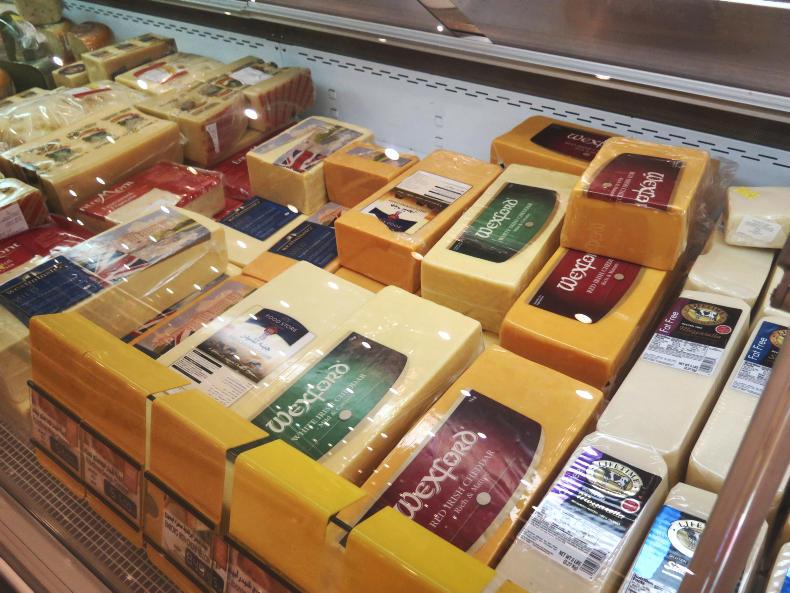Immediately after the vote for Brexit became a reality, it was clear that Ireland’s cheese sector was particularly vulnerable to any tariffs or barriers that might stem from the vote. At the time, the UK accounted for 115,000t, or almost two-thirds (65%), of Irish cheese exports.
However, in the intervening period since the Brexit vote, Ireland’s cheese industry has done an exceptional job of diversifying away from the UK market. While the UK still takes 115,000t of Irish cheese today, dairy co-ops are now shipping around 117,000t of cheese to non-UK markets. This means the Irish dairy industry has found a new home in international markets for an additional 75,000t of cheese. This extra cheese is all being produced from the significant increase we have seen in the Irish milk pool since the ending of milk quotas.
New markets
So what markets are Irish co-ops now selling this extra cheese to? About half of the 117,000t went to other EU countries. Most interesting is that 27% of Irish cheese exports went to the Middle East & North Africa (MENA) and 18% went to Japan.
There is big potential here for Irish exports. MENA countries imported 205,000t of European cheese in the last 12 months. Japan imported 100,000t. Together, this amounts to 36% of all EU cheese exports. Added to this, the recent EU-Japan trade deal will go further and lower tariffs on cheese sold to Japan from almost 30% to zero over the next 15 years.
All of this market diversification is on the back of heavy investment by companies in these sectors in new capacity and product innovation. In the Middle East, Ornua now has capacity recombining protein in-market to make white cheese and spreadables.
The big investments coming on stream in Ireland are also increasingly aimed at non-UK markets – for example Glanbia’s new mozzarella JV and Dairygold’s tie-up with Norwegian dairy company TINE in Jarlsberg cheese.
Diversification is not a panacea. It is difficult, expensive work. For this reason, most Irish companies are also looking at other options such as stockpiling or investment in the UK. In a ‘no deal’ Brexit scenario, where the fall back is WTO tariffs, we would need to grow our exports by at least 65,000t just to offset lost UK demand in the first year. Even if the dislocation is less dramatic, the UK market still has great margins, low transport costs, similar retail and consumer tastes so it will not be an easy journey.
Support for the sector will need to ramp up in a ‘no-deal’ scenario, including a temporary State-aid regime at an EU level.








SHARING OPTIONS